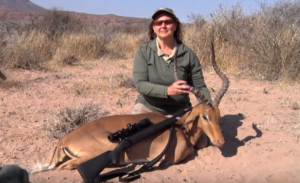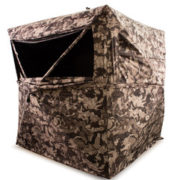What an African Safari Means to so Many
Americana Outdoors heads to *Limpopo, Africa with a group of ladies, many of whom are on their first international trip. While there they will learn more about how the animals from this great continent do so many good things for the locals that call the area home. This is a one-of-a-kind trip featuring first time hunters, seasoned professionals, as-well-as hunting-shooting industry veterans who will be sharing insight on this unique trip. We’ll see and hear stories of the travel, experience what it means when hunters provide for villagers in need as-well-as the camaraderie found in hunting camps. Witness first hand safaris for *kudu, *impala and more while also showcasing Thompson Center Compass Rifles.
*Limpopo is the northernmost province of South Africa. It is named after the Limpopo River, which forms the province’s western and northern borders. The name “Limpopo” has its etymological origin in the Northern Sotho language word diphororo tša meetse, meaning “strong gushing waterfalls”. The capital is Polokwane (formerly Pietersburg). Limpopo has the highest level of poverty of any South African province, with 78.9% of the population living below the national poverty line. In 2011, 74.4% of local dwellings were located in a tribal or traditional area, compared to a national average of 27.1%. The Northern Sotho language is spoken by more than half of Limpopo’s population.

Kudu
*Kudu, or koodoo, is the Khoikhoi name for this antelope. They have to rely on thickets for protection, so they are rarely seen in the open. Their brown and striped pelts help to camouflage them in scrub environments. Kudu meat is similar to venison (deer), with a slight gamey, liver-like flavor. It is a very dry and lean meat, so it needs to be cooked carefully to avoid drying it out and making it difficult to eat.

Impala
The *impala is a medium-sized antelope found in eastern and southern Africa. The impala is a medium-sized, slender antelope similar to the kob or Grant’s gazelle in build. Impala has a very similar taste profile as the kudu; although, we found kudu to have a slightly sweeter taste.
For more videos and shows be sure and check us out online at AmericanaOutdoors.com
Follow us on Facebook, Twitter, YouTube and Instagram for more fishing and hunting tips and a chance to win trips and other outdoor gear prizes!










